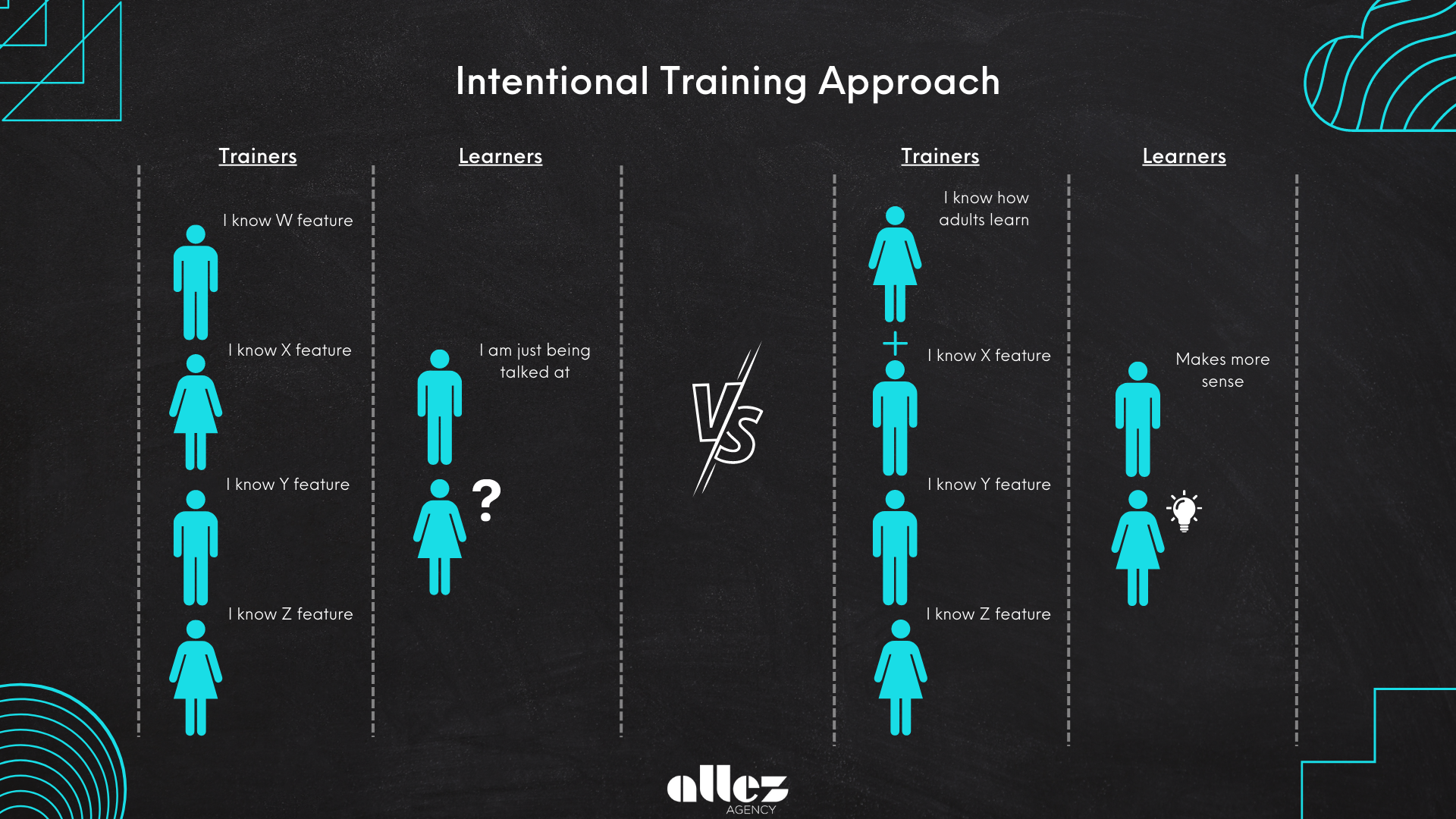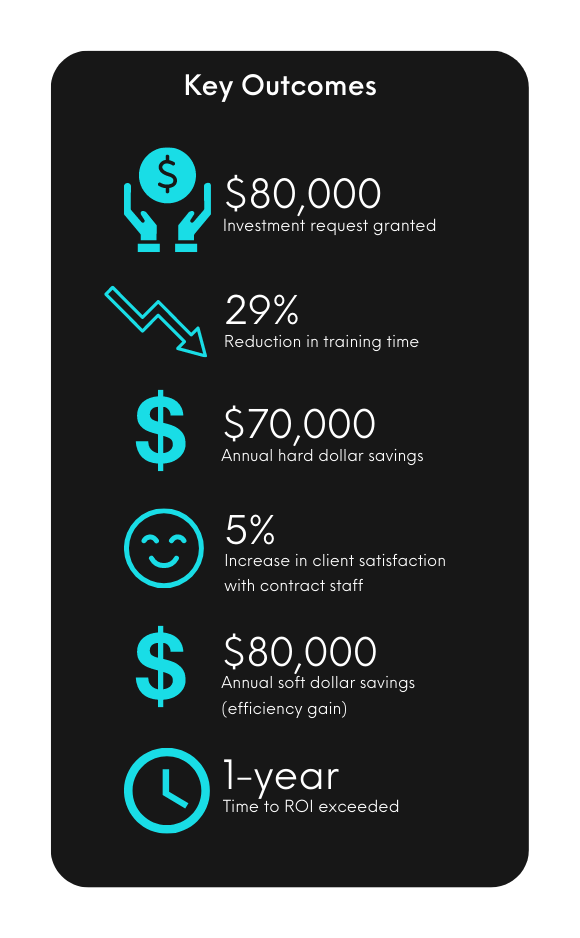Intentional Training Programs
Overview
NWEA’s support team brought in season contractors for peak support periods. The training was conducted by the senior support staff and was an auxiliary role to their daily duties. The training program was long (3 weeks) compared to the length of the contracts (9-12 weeks) and produced contractors that struggled to be effective and efficient once they were ready to support the customers. The customer experience was subpar due to poor first contact resolution, unnecessary escalations to seasoned staff for resolution, and contractor job dissatisfaction due to feeling underprepared. The goal of the project was to highlight the benefits of a dedicated training resource that implemented adult learning methodologies to effectively overhaul the contractor training program and provide additional training to full-time staff during other times of the year.
The Approach
Initially using the ADDIE model and later Agile development practices paired with adult learning theories the program was evaluated for opportunities for enhancement. Through this process, we identified the following opportunities.
Defined the essential skills, knowledge, and abilities a contractor should possess before hiring.
Defined the basic skills and knowledge a contractor should have post-training (success criteria).
Tagged all content that was relevant and should be kept in the training program.
Moved all the excess content to supplemental training during the later stages of a contractor for high-potential contractor conversions.
Identified content that should be overhauled and adult learning theories added to enhance content retention.
Highlighted the importance and value of having a dedicated training resource who understood adult learning theories for content creation and delivery which was supplemented with subject matter expert support.
Created a development backlog for updating existing assets and creating new ones to narrow focus and maximize time to value.
Biggest Challenge
Developing a compelling business case that supported the organization investing more money into a training role and program. Training programs can be hard at times to show direct value through increased spending when there is already a program in place that seems to be functioning well. To create a compelling case we focused on three areas of improvement and the cost savings associated.
Reduction in classroom time for contracted staff by implementing a more focused training program with a dedicated training specialist (hard dollars).
Implementation of adult learning methodologies enhancing content retention and reducing subpar support experiences for customers (soft dollars).
Continuous training programs to support new product and feature releases for full-time staff which increases efficiency and accuracy of support interactions (soft dollars).
Outcomes
The new role was approved during the next fiscal year which was 6-months after the idea was initially explored. During the 6-month period, two support team members who were interested in the role spent downtime enhancing the training program and developing their skills for when the role became available. During the first year of implementation, we were able to reduce the length of contractor onboarding by 29% or 4.5 days which was the most significant improvement to show efficacy around the monetary investment by the organization. The cultural change within the team was another benefit as it opened career pathing and additional skill-building opportunities. Paved the way for a new team launching focused on product training for staff and customers 24 months later.
Initiative Lead: Austin Christian
Project Leads: Austin Christian, Ike Graul, Jake Fee
Project Members: Brian Ross, Patricia Dorsey, and Thomas Wells




